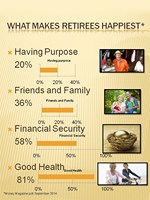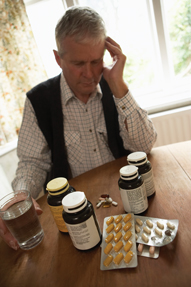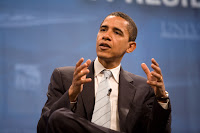 Most people believe that money is the answer to everything. There is even a joke that, “Money may not buy happiness, but it’s better to cry in a Lamborghini than on a bicycle.” Har har har…yeah, ‘cept it ain’t necessarily true. While surveys and studies can be found to support any position, a recent Money Magazine survey (Sept 2014) showed that “what makes retirees happiest,” isn’t money, but health. Yes health! Duh! And that is what this post is about: How having money may actually be a hindrance to good health. But not for you, because you read this blog, and you take the information, assimilate it and act accordingly. Right, read on:
Most people believe that money is the answer to everything. There is even a joke that, “Money may not buy happiness, but it’s better to cry in a Lamborghini than on a bicycle.” Har har har…yeah, ‘cept it ain’t necessarily true. While surveys and studies can be found to support any position, a recent Money Magazine survey (Sept 2014) showed that “what makes retirees happiest,” isn’t money, but health. Yes health! Duh! And that is what this post is about: How having money may actually be a hindrance to good health. But not for you, because you read this blog, and you take the information, assimilate it and act accordingly. Right, read on:
 This post came to my attention while discussing my cousin’s employer with my mom. Turns out the employer is an elderly man who sits on the board of a major tech company. He’s financially loaded, and he also spends much of his non-working time visiting doctors. He is on a multitude of medications—for cholesterol, for high blood pressure, for bipolar, for sleep disturbances, and on and on. We know this because my cousin is this man’s personal assistant. As I listened to this story I couldn’t help but think how this man, so representative of the average American senior with regard to his health care, was on this polypharmacy path for one simple reason: He could afford to be.
This post came to my attention while discussing my cousin’s employer with my mom. Turns out the employer is an elderly man who sits on the board of a major tech company. He’s financially loaded, and he also spends much of his non-working time visiting doctors. He is on a multitude of medications—for cholesterol, for high blood pressure, for bipolar, for sleep disturbances, and on and on. We know this because my cousin is this man’s personal assistant. As I listened to this story I couldn’t help but think how this man, so representative of the average American senior with regard to his health care, was on this polypharmacy path for one simple reason: He could afford to be.
Then it got me thinking about our new “universal health” system, which essentially promotes the lifestyle I have just described. Yes it does. The premise was that everybody deserves as much modern medicine as they need. Uh huh… Let this man’s story illustrate what we become when we rely on the medical industry to guide our health decisions.
 Wait Campos! That’s unfair: We do not know this man’s particular circumstances. Okay, true, but we do know a few things. As of 2012, 65 percent of American seniors were on three or more prescription drugs, 36.7 percent were on five or more prescription drugs. We also know that many conditions today, which receive a large proportion of annual prescriptions, are lifestyle related. Take last year’s (2013-2014) most prescribed medications for instance, four of ten were for conditions that can be significantly improved (or prevented) with the proper lifestyle modifications (and I would argue that three others could be avoided with “alternative” approaches, mostly paradigm shifts). Cholesterol lowering, heartburn, blood pressure lowering, and diabetes—all preventable AND fixable with proper lifestyle modifications.
Wait Campos! That’s unfair: We do not know this man’s particular circumstances. Okay, true, but we do know a few things. As of 2012, 65 percent of American seniors were on three or more prescription drugs, 36.7 percent were on five or more prescription drugs. We also know that many conditions today, which receive a large proportion of annual prescriptions, are lifestyle related. Take last year’s (2013-2014) most prescribed medications for instance, four of ten were for conditions that can be significantly improved (or prevented) with the proper lifestyle modifications (and I would argue that three others could be avoided with “alternative” approaches, mostly paradigm shifts). Cholesterol lowering, heartburn, blood pressure lowering, and diabetes—all preventable AND fixable with proper lifestyle modifications.
But is that the road most westerners choose? No! For whatever reasons—be it looking for easy answers, rationalizing, or the shared doctor-patient belief that only meds are truly viable—the majority of Americans (and our European and now Asian counterparts) choose the polypharmacy route over caring for their health, and I am certain that is a disease of modern affluence. We run to medical care because we can! Yes it’s the easier answer to control our dysfunctions rather than correct them through lifestyle modifications. So much easier to take a pill then walk around the block every day, pump iron, lay off the sugar, and so forth. And we have been conditioned to believe that is the only way to do it. It doesn’t matter how much information comes out extolling healthy behaviors: The average westerner runs to his or her doctor for a medical fix first—that’s what the data shows.
 I actually believe that the so-called have-nots are in a better position health-wise, as they can take their health into their own hands from an early age. What we do habitually is what matters most, and so focusing on healthy behaviors soon and often will not only be best for your current health, but also will train you to look to yourself when health challenges arise. Heck yes, medical care is necessary in many circumstances; but understand that a reliance on medicating fixable conditions is deeply ingrained into your psyche by years of observation and acceptance. There is evidence that lifestyle modification improves conditions like type 2 diabetes, high blood pressure and many gastrointestinal issues (like gastric reflux). You do not have to be the victim of historical tradition—frankly it’s foolish.
I actually believe that the so-called have-nots are in a better position health-wise, as they can take their health into their own hands from an early age. What we do habitually is what matters most, and so focusing on healthy behaviors soon and often will not only be best for your current health, but also will train you to look to yourself when health challenges arise. Heck yes, medical care is necessary in many circumstances; but understand that a reliance on medicating fixable conditions is deeply ingrained into your psyche by years of observation and acceptance. There is evidence that lifestyle modification improves conditions like type 2 diabetes, high blood pressure and many gastrointestinal issues (like gastric reflux). You do not have to be the victim of historical tradition—frankly it’s foolish.
Don’t let your ability to indulge in medical care be the definitive factor in how you approach your health. Use our incredible medical system for crisis care, and you take care of the lifestyle part. Believe me when I say that you can neither buy happiness nor health. I would venture to bet that my cousin’s employer would trade his wealth any day for a return of his health. Heck I guess he is in a way now anyhow. What a crazy world we live in.














